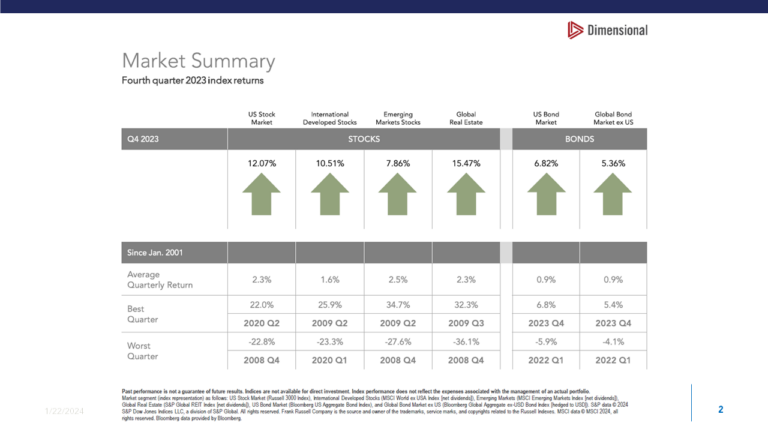So you graduated from college and you are off to your first job. Congratulations on making it this far! I’d tell you things are about to get real, but you know things are already “real” and you’ve proven you can handle it. What is about to happen is your next major life change. Here are four tips that are crucial to set you up for financial success moving forward.
BUDGET – If this sounds like a dirty word to you, then it is time to get comfortable with a cuss word that your grandmother will actually approve of. The most basic budget simply tracks your take-home pay against your monthly cash outflows. Where it tends to get a little tricky is converting cash-flows into monthly amounts, so that you end up comparing apples-to-apples. For weekly expenses like groceries, multiply the expense by 4.3 to get the monthly amount. Also, if you get paid every two weeks, it’s important to remember that there are 26 two-week periods in every year.
Budgeting may not be fun, but it can be easy. If you prefer to skip all of the calculations listed above, then check out tools like Mint (www.mint.com), Tiller (www.tillerhq.com), or YNAB. (www.youneedabudget.com). Commit one hour every month to reviewing and fine-tuning your budget. Want to get more in-depth on this subject? Check out Winfred Jacob’s 5-part series Cash Management and Budgeting. Installment 1 can be found by clicking here:
DEBT MANAGEMENT – First things first, take stock of your current debts. You can’t manage what you have until you are aware of what you have. Go to www.annualcreditreport.com to get your free credit report from each of the three reporting agencies. This is also a good time to look for any inconsistencies between the three reports and address them now.
Most college grads have some school loans and some have significant loan debt. Just because the first payment may not be due for six months, does not mean you should ignore them. Login to your accounts online or call the lenders to gather the basics such as type of loan, term, interest rate, and balance. You should get a handle on how big the payment is going to be and how that will fit in your budget. If the payment doesn’t seem manageable, you may need to investigate an option like income-based repayment.
Do you think $4,000 of credit card debt isn’t that bad? Think again. That balance, accumulated from a few years of buying things you can’t even remember, could easily cost you $800 a year in interest. That’s a pretty big chunk of your take-home pay if your first job starts at $40,000 or $50,000 a year. Make paying off these consumer debts a priority.
Which leads me to one of my best pieces of advice – don’t take on unnecessary consumer debt right out of college! You might think you deserve that fancy new car after living like a pauper for four years of college, but I know more than a few people who regretted that decision two years later. Debt is a dream killer!
SAVING – Right off the bat you should automate savings to two places; an emergency fund and your retirement. The easiest way to automate your savings is to have your employer deposit a specific amount from each paycheck directly into the respective accounts.
Your emergency fund will save you down the road in ways you can’t even fathom right now. It will allow you to avoid asking dad for a loan to put brakes on your car, and it will have your friends wondering how you have it so under control because you never seem to be pinched for cash like they are. You should build your savings to an amount that will cover six months’ worth of living expenses, and you should keep those savings in an online, high-yield account. A few banks to check out are Ally (www.ally.com), Synchrony (www.synchronybank.com), and GS Bank (www.gsbank.com).
Retirement may seem like it’s a long way off and only something people your parents’ age worry about, but now is the absolute best time to start saving for it. The saying that compound interest is the most powerful force in the universe has been attributed to Albert Einstein. It’s unlikely that Mr. Einstein actually said that, but it’s a great personal motto to adopt, nonetheless. Saving what may seem like a little bit now, will make it likely that you can save significantly less when you are older and still end up with an appropriately sized retirement account. The best place for most people to save is to their work-provided retirement plan. As a rule of thumb, your contribution rate combined with the employer match should be 10-15% of your gross income. If that seems impossible, start at a lower percentage and automatically increase it every year until you are at 15%. The absolute minimum is whatever it takes to maximize the employer matching contribution.
INSURANCE – You’re young, healthy, and feeling invincible, but life happens and it can knock you off your feet when it does. The emergency account I referenced earlier will save you from a lot of life’s unexpected turns, but various insurances should be considered to keep you moving forward when life hits a little harder.
Health insurance is something that everybody is familiar with, but not everyone has. Since medical bills are the leading cause of personal bankruptcy, you would be wise to make sure you have a plan that at least provides catastrophic coverage. Under the Affordable Care Act you may be covered under your parents’ plan until age 26. If not, you should investigate the options available through your employer, or the state or federal healthcare exchanges.
Disability coverage is another very important insurance which covers a portion of your income if you can’t work for extended periods of time. An appropriately sized emergency fund should get you through a short term disability, but a long term disability (one lasting longer than 180 days) could change the course of your life. Review your employer benefits to find out if you get any coverage through them. If not, or if it is inadequate, consult an agent to get a policy that provides you appropriate coverage.
Most recent college grads find themselves renting their living space, instead of owning it. If your apartment burns down while you are at work because your upstairs neighbor tried to put out a cooking grease fire with water, you will be out all of your possessions. Your landlord is not required to carry insurance that covers your stuff, but you can probably buy your own renters insurance for what a burger and a beer would cost you every month.
Follow these four tips and you will be well on your way to a clean financial bill of health. You’ll end up less stressed about money, have the freedom to take advantage of opportunities that you didn’t see coming, and be prepared to handle life’s curveballs that are sure to come.
Paul Coleman III, CFP®
Financial Advisor


